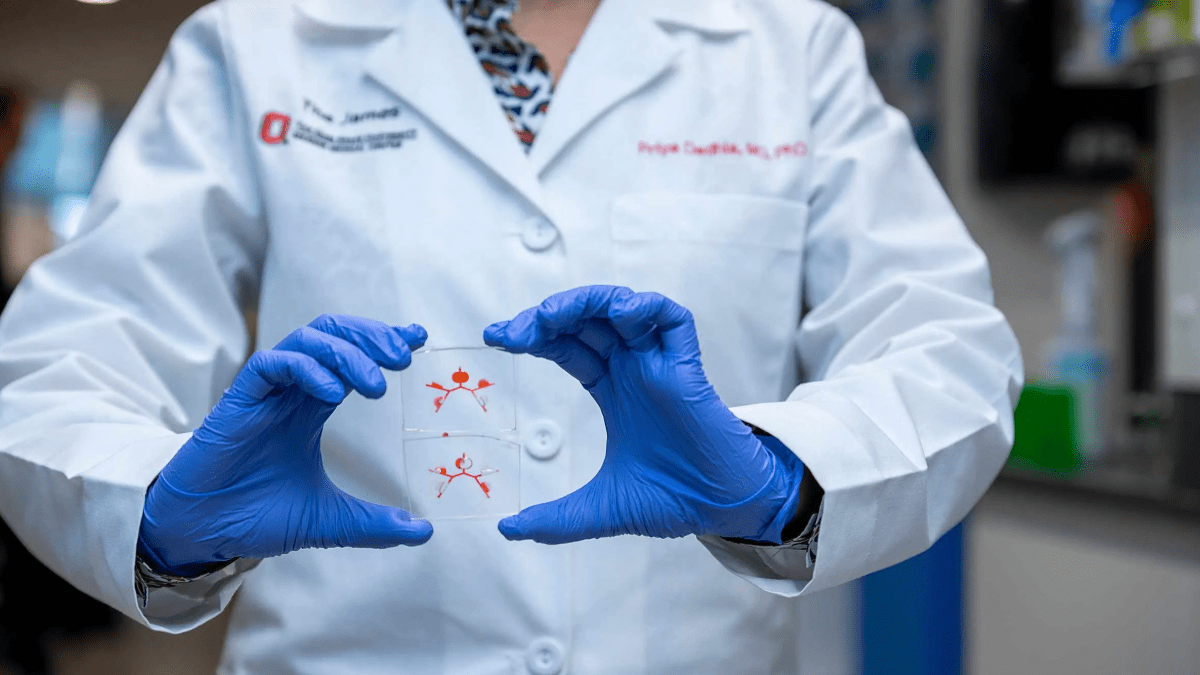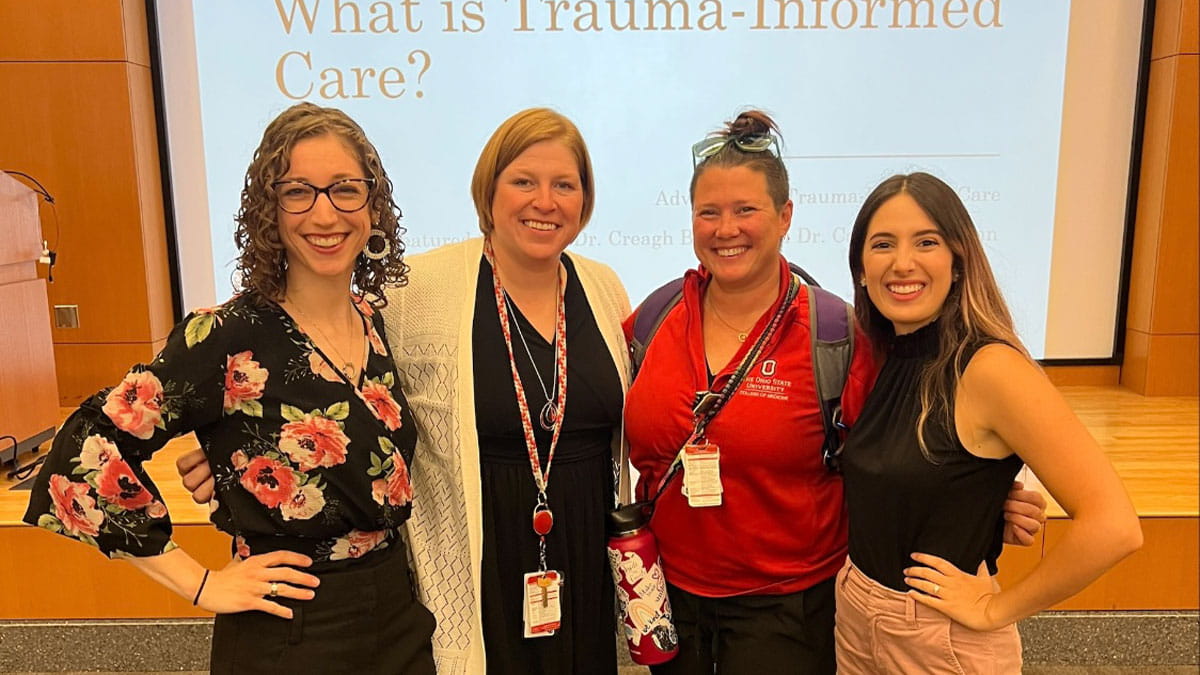Research on esophageal dysfunction post-lung transplant awarded AΩA Carolyn L. Kuckein Student Research Fellowship
Phoebe Um, a fourth-year medical student at The Ohio State University College of Medicine, has been awarded the 2021 Alpha Omega Alpha (AΩA) Carolyn L. Kuckein Student Research Fellowship. Fostering the next generation of medical researchers, the fellowship provides funding for medical students conducting clinical investigation and other research projects. This award is a testament to the promising, high-quality student research that Um is contributing to the Ohio State College of Medicine.
Chronic lung allograft rejection is the leading cause of morbidity and mortality within the year following lung transplantation. Post-lung transplant complications such as chronic lung allograft rejection provide sizable limitations to long-term survival solutions for patients with end-stage pulmonary disorders.
One possible contributing factor is gastroesophageal reflux disease (GERD). A common postoperative symptom of lung transplants, GERD manifests as the backflow of stomach acid from the stomach into the esophagus. This backwash poses a risk factor for aspiration, which introduces foreign substances to the lungs. Consequently, it’s believed that this may result in allograft rejection and the development of chronic allograft failure. However, evidence supporting this remains unclear and is often contradictory.
To address this possible risk factor, Um aims to examine the role played by esophageal motility on gastroesophageal reflux, evaluating the relationship between changes in esophageal contractility, reflux and the microaspiration of reflux.
“The current hypothesis behind this relationship is that repeated reflux episodes predispose individuals to microaspiration of bile acids, which go on to cause inflammatory injury to the lung allograft,” says Um. “Previously, we have found increased esophageal contractility after lung transplantation in a study of 35 Ohio State University Wexner Medical Center lung transplant recipients.”
To first identify the presence of GERD in participants, Um plans to analyze esophageal manometry tests. This test assesses motor function of the esophageal body and its sphincters to determine proper function of the organ. She will also classify GERD by conducting pH impedance tests that evaluate the flow of acidic stomach fluid into the esophagus. Um then plans to source bronchoalveolar lavage fluid samples from patients to test bile acid concentrations within the lungs.
Um aims for future work to assess the impact of changes in esophageal contractility on chronic rejection in lung transplant recipients.
“I hope that being able to dedicate my extended time and energy to this project during my last year as a medical student will propel this project forward for future growth, advancement and further fundings,” says Um. “I’d like to thank Dr. Megan Chan, Dr. Gokul Bala and Dr. David Nunley for their amazing continued support over the past few years. Having wonderful mentorship that not only trusts but also encourages me to think independently and pursue my projects of interest has been such a blessing during my medical school career.”
"Our chapter is so pleased that Phoebe has received the Alpha Omega Alpha Carolyn L. Kuckein Student Research Fellowship,” says Sheryl Pfeil, MD, AΩA adviser. “These are competitive, national research awards that are intended to foster the development of the next generation of medical researchers. This fellowship award is a testament to the high quality of Phoebe’s proposal, her strong mentoring team and most especially her tremendous dedication and potential for meaningful scientific research and discovery.”
With the Ohio State Wexner Medical Center serving as one of the largest transplant centers in Ohio, this study will offer necessary insight into optimizing the function of lung transplants in its patient population, giving more individuals the previously unimaginable chance at a new life.



